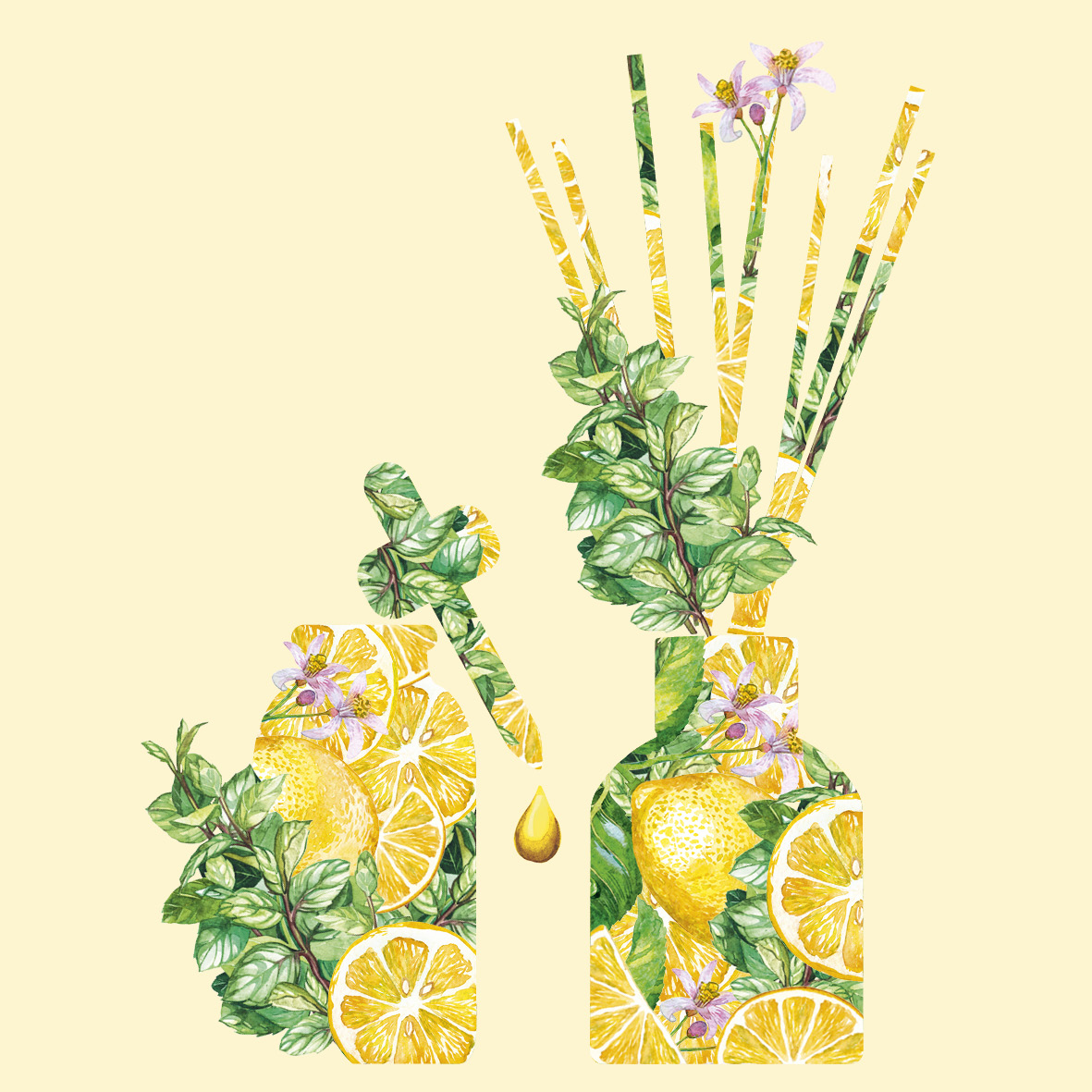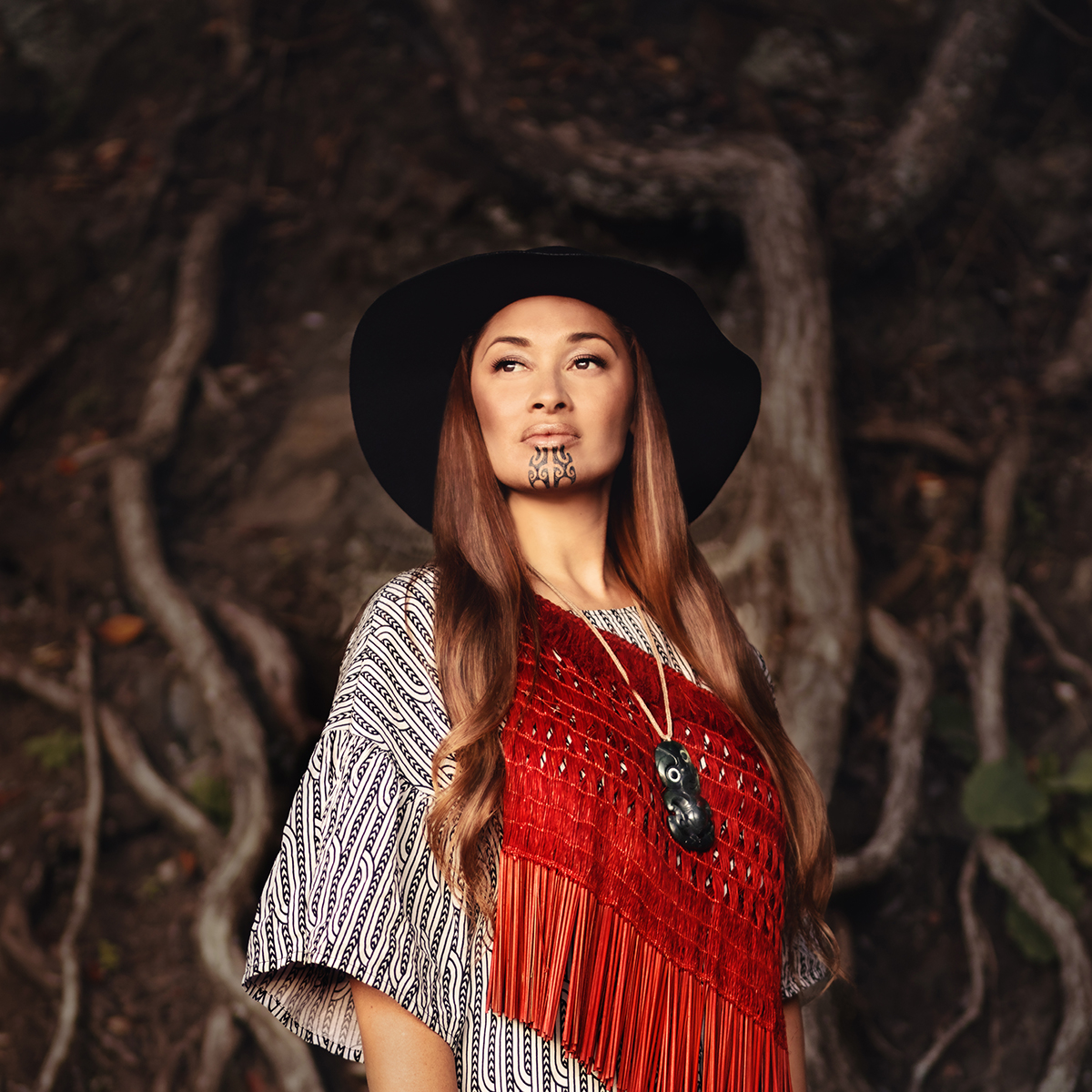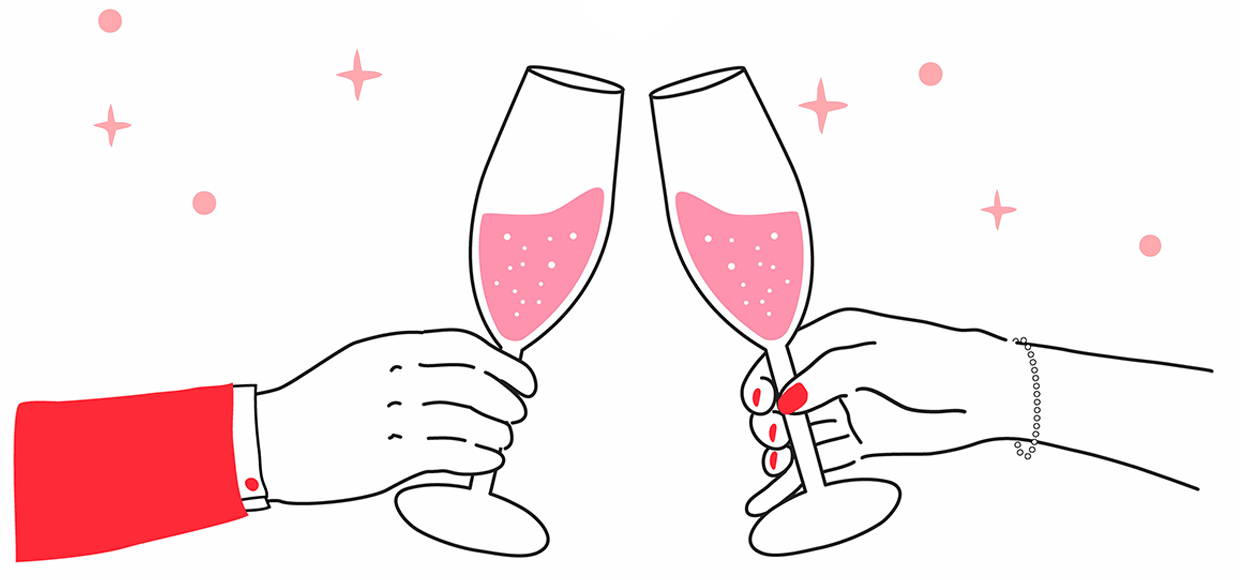In a wellbeing era, essential oils are no longer reserved for health and beauty products, they are now being added to food. It’s become quite trendy to add a drop or two to a cake, use in a smoothie recipe, confectionary and more. But is it safe? We talk to the experts.
In recent years essential oils have found their way into our homes, diffused or burnt into the air, used as treatments for a health condition, in homemade house cleaning products and placed in our beauty cabinets for use in facial serums and other lotions and potions. Now bottles are infiltrating kitchens, too, with drops of oil being added to drinks and increasingly, food recipes.
Since doTERRA and Young Living hit the scene the trend has exploded, with the message – essential oils can transform your health. And with the rise of social media, the encouragement and promotion by influencers and bloggers, adding essential oils to food has become increasingly popular, but concerning to the qualified community, worldwide.
A word of caution
Experts agree essential oils can assist in providing relief for a specific health condition but only when they are used in the correct way and at the correct dosage for the specific age range being treated. This is by applying them through the methods of safe practice taught to qualified practitioners.
These methods are via correctly diluted topical and various inhalation methodologies. If you are qualified in the practice of Aromatic Medicine (of which there are no courses for in New Zealand), internal use (via mouth, rectum or vaginal) is an option, however, these methods are highly complex and must not be attempted by the unqualified general consumer.
In today’s culture there’s a desire to be natural and move away from synthetics and what’s considered man-made. So, it’s easy to see why some people may consider adding essential oils to their diet as being a good thing. More often than not, if a product is natural it’s supposed to be good for you, right? Wrong, says Gillian Parkinson, Clinical Aromascience practitioner and owner of Le’Esscience.
“Natural means natural. Natural doesn’t mean safe,” says Parkinson. “They always, in every aspect, have to be diluted and the dilution must be safe for the age range you are treating. You should never use undiluted oils straight on the skin as this is putting the end user at high risk of adverse reactions. It has been scientifically proven that once applied topically, the essential oils travel through hair follicles, pores and are in the blood stream within two minutes, and in the central nervous system within 15.”
This mirrors the way nicotine patches work when applied to the skin, she explains. The nicotine enters the bloodstream, builds in the system and enables the wearer to feel relief. It’s easy then, to remember that essential oils are a medicine and should be treated as such. “It would be no different from going to your doctor and saying you want some antibiotics for the flu,” says Parkinson.
In the same way that notes are used in perfume manufacturing, essential oils are also considered a note. Generally, there’s a top note, a middle and a base. The top notes stay in the body for 24 hours, the middle notes two to three days and the base notes stay for one week. Essential oils have a cumulative effect. In this respect, when a recipe includes a large number of drops of oil, and worse, if you are using this method regularly, when thought of as medicine building up in the system it could be considered similar to an overdose.
“Essential oils are a medicine, they don’t contain vitamins or minerals, there are no benefits to ingesting essential oils regularly as you would a vitamin tablet. The risks of adverse reactions are so high, and the reactions can happen at any time whether you have been ingesting for a few weeks to months. They are not to be used unless there’s a specific need,” says Parkinson.
If you’re hosting a dinner party and considering adding essential oils to your favourite cake recipe, it’s really important to consider your guests. Maybe you have a relative or friend who suffers from diabetes, and taking regular medication for this, another friend may be on blood-thinning medication or be pregnant and not yet know. Generally, people don’t openly discuss their personal health concerns. Essential oils metabolise differently when in the body and have the ability to interact and disrupt the healing qualities of prescribed medication.
“If used incorrectly, the oil has the ability to speed up, slow down or dilute the effects. Not only that, [they can] irritate or damage sensitive tissues (oesophagus, gut, kidney, gall bladder and liver) or in extreme cases poison if ingested,” says Sylvia Parsons, a certified aromatherapist for PureNature.
This is important when it comes to the type of oil you’re using. As each pure, highly concentrated essential oil is made up of different chemical constituents, they each come from different species of plant (there are around 300 different essential oils), which is why lavender might better treat sleep and specific eucalyptus species assist in relieving colds and flu.
It also means that while they are being promoted for their taste, deep down they work differently. Oils like cinnamon are contraindicated to children, during pregnancy and breastfeeding, anyone with diabetes and/or someone who has had recent surgery. Cinnamon is also deemed a hazard as it prevents blood from coagulating. Citrus oils for example, contain the chemical limonene which is used as an engine oil cleaner as it’s great at stripping oil.
“What we do know are the adverse reactions, such as unexpected skin rashes, redness, itching/burning, blisters, irritability, headaches, watery eyes, respiratory problems, gut, IBS symptoms, gall bladder, liver and kidney problems,” says Parkinson. “What’s scary is what we don’t know, because this is such a new trend, and what other problems it could be causing.”
Some of the most hazardous essential oils to ingest or put on your skin undiluted are wintergreen, sage, oregano, cinnamon, thyme and clove.
“You would burn a hole in your skin or stomach they are that dangerous,” says Ross Macdougald, Biologi founder, formulation chemist and owner of Australian essential oil supplier Phytoverse. “You have to remember when you are taking oregano herb the oil in it is very minimal and it is good for you. But you need a lot of oregano herb to get an essential oil and you are concentrating it, which is why it is a dangerous thing.”
It is hazardous to ingest any essential oils without professional guidance; Oregano oil is one of the worst essential oils to ingest says Parkinson. “Taking it orally can cause gut problems, over time stomach ulcers and puts massive strain on the liver, kidneys and gall bladder,” she says. “If you are doing this daily with oregano, as well as ingesting other oils, overusing in a diffuser, using undiluted on your skin, popping essential oil capsules, you are simply enabling adverse reactions which can lead to a lifetime of sensitisation. In fact, these methods, as an example, are a ticking time bomb. And more frightening, it has become so common and not just limited to adults, but these methods are used on babies, toddlers and children too.”
What’s also important to remember is that oil does not mix very easily. When diluting the oil in a plant-based carrier oil before use, it has to be done properly, at the right quantity, before it can even be considered safe.
This includes adding oils to your bath says Robert Tisserand (tisserandinstitute.org), one of the world’s leading experts in aromatherapy. “Whenever oils are mixed with water without a dispersing agent, there is a risk of irritation, since undiluted droplets of essential oil attach to the skin, often in sensitive areas,” says Tisserand.
Advocates of consuming essential oils would argue that when mixing ingredients, the oil also becomes mixed. It’s questionable if the essential oil actually gets broken down properly within the body and instead clings to the nearest surface, eventually resulting in damage to the gut lining. What’s worrying is to think of what happens to the oil next.
More importantly, what it’s doing to you, says Macdougald. “Essential oils don’t get removed from your body, but instead get stored in your fatty tissue. Your body can’t get rid of oil toxins, that’s the reason you become sensitised. For example, someone I know is on the keto diet because she became sensitised to mercury. She’s on the diet to take lots of fat to push the oil out of her system.”
To become sensitised is to have an inflammatory reaction of the immune system, which can occur when essential oils are not being used safely and overused in unsafe methods, resulting in redness, irritation or blistering. It’s advised that if you recognise these signs, to stop using all essential oils at once. For a product that is promoted by influencers and large, (multi-seller) corporations as natural and good for you, suddenly it seems not so safe and actually does the opposite of the message it stands by.
Know your facts
When it comes to purchasing pure essential oils, it’s vital the label states the common name, if it’s 100 per cent pure, as well as the botanical/species name. It’s a means of making sure you know what you’re getting. With a blend it is, however, not a legal requirement to include the percentage of each oil.
It’s important to remember that no professional qualified essential oil practitioner in New Zealand (Aromatherapist, Aromatologist, Aromascience Practitioner) will prescribe or encourage using essential oils internally in any way. So, before you take the advice of your favourite foodie Instagrammer or purchase from a mass-seller website, be wary. If you’re at a party and you feel like essential oil may be in your food, it’s okay to enquire with the host. Don’t be afraid to ask the question.
Powerful properties
For centuries, the plant kingdom has provided us with rare and powerful extracts. The oil retrieved from the plant is not just an oil, but a natural chemical.
These chemicals are made up of different constituents, which gives each their own therapeutic property and is why they can be used as a complementary health product; whether the properties are anti-inflammatory, antibiotic, antiseptic, through holistic use, to aid sleep and induce calm, for example.
Because of this, plants have been the source for medicinal purposes for thousands of years and play a part in the pharmaceuticals of today.
Essential facts
- Don’t confuse essential oils with food oils, which have been through a deterpenation process, which removes hazardous chemicals, making them fit to consume.
- Ingesting essential oils can alter medications prescribed by your doctor, such as speeding up, slowing down or diluting effects.
- Never consume essential oils (unless under the guidance of someone qualified in aromatic medicine). Some essential oils are more hazardous, such as ones that are mucous membrane irritants or hard for the liver and kidney to process, such as oregano, thyme, clove or cinnamon.
- Some essential oils have a 90 per cent irritancy level, such as citrus essential oils.
- Be careful not to over diffuse in your home, it can affect you, your children and your pets. Safe guidelines for diffusion is 30 minutes for babies and children, 60 minutes for adults. Vital, too, is using the safe essential oils and correct number of drops for the age range.
- Avoid exposing children to essential oils unless under the guidance of a qualified practitioner, their lungs and brains are still developing, and skin is too sensitive.
- The bottled essential oil is 50-100 times more concentrated than it was in plant form.
- Of the 300 or so essential oils in the world only eight don’t contain sensitisers.
- Never apply undiluted essential oils to the skin and use only topically when correctly diluted or via various inhalation methods.





